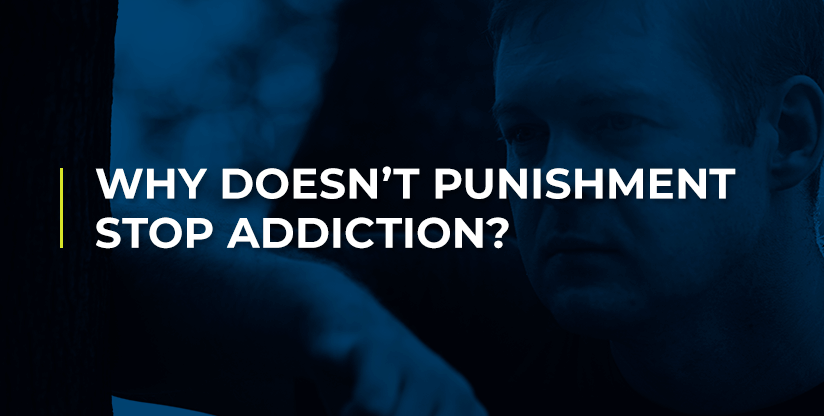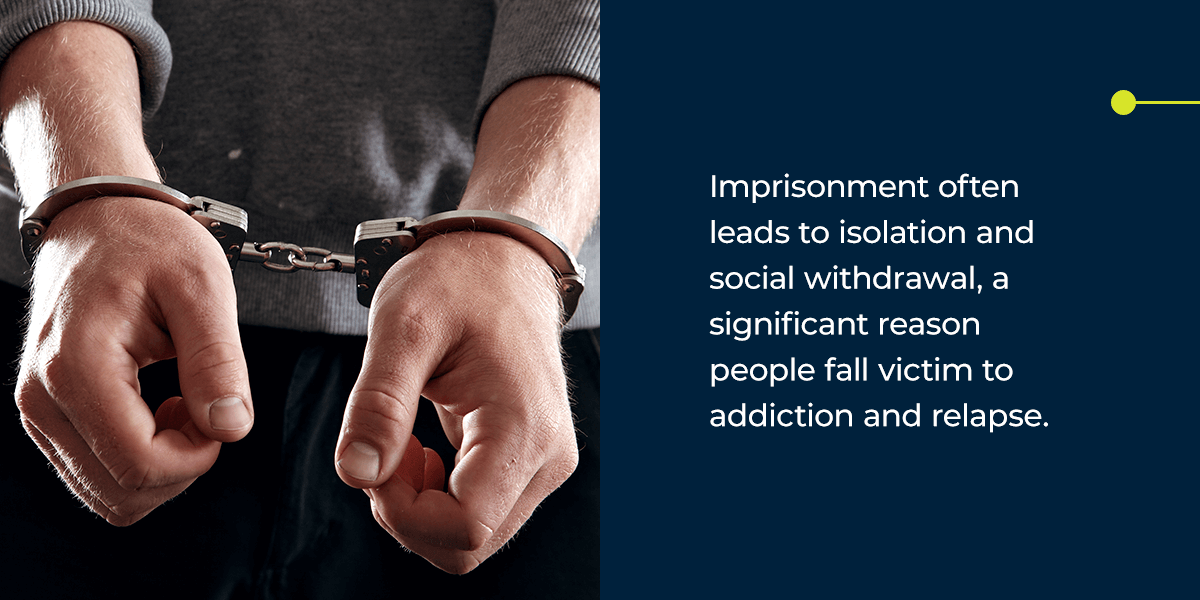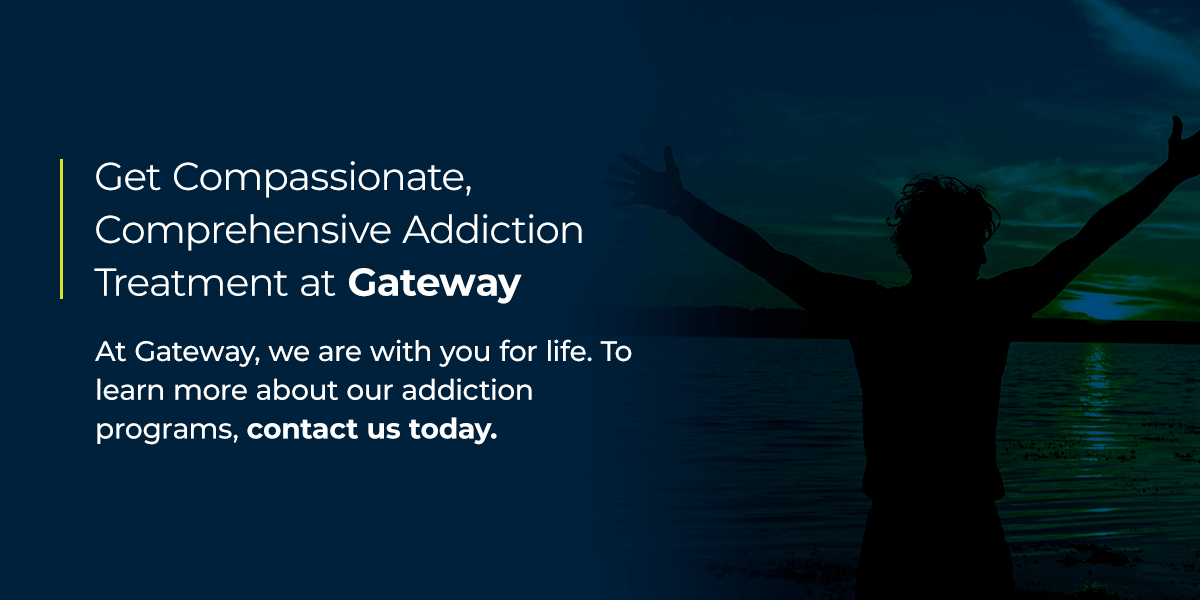- Jun 22
- Addiction

Addiction is a medical condition, not a character flaw. Yet, despite the research and overwhelming evidence in favor of this position, drug addiction continues to be stigmatized. It’s crucial that we understand substance use disorder for the complex yet treatable disease that it is. It cannot be stopped through punishment or incarceration, requiring a comprehensive, therapeutic, and compassionate approach to treat it effectively.
While society often punishes or looks down upon people with this disease, continue reading to learn why this doesn’t work and the effective ways to stop drug addiction.
Reasons Why Punishment Doesn’t Help Treat Addiction
Drug addiction is a brain disease that can impact a person’s health and livelihood. It requires a complex approach to address a complex condition. Here are a few reasons why punishing drug addiction doesn’t work:
1. It Doesn’t Address the Root Problems
Substance use disorder is considered a chronic brain disease, and as such, regular use of addictive substances changes the brain. People are not at fault for their addictions, making any form of punishment fundamentally misguided. The disease impacts the brain’s reward system, prioritizing immediate results without considering long-term consequences.
Therefore, a person with an addiction will do things they never imagined they’d ever do, no matter the consequences. For example, it’s common for people with addiction to continue their drug addiction even amidst serious health concerns, after a job loss, or despite facing penalties for driving under the influence. If negative repercussions worked, these people would stop. As a result, punishment will not prevent or end addiction on a larger scale.
While jail might be a penalization for a specific crime, it ultimately doesn’t consider the root causes of addiction, including genetics and brain changes, mental health conditions, and environmental stressors.
2. It Perpetuates a Stigma
Punishing drug addiction only reinforces the harmful stigma that people with this disease are morally wrong. Addiction stigmas also support the notion that people suffering from it are lazy, selfish, or deviant. Instead of helping people, punishment can make anyone with addiction less likely to seek help, creating a cycle of shame and continued use.
Our society’s push toward punishment makes addiction a moral issue while keeping people from effective treatment. When struggling with addiction, it’s common to feel shamed and humiliated or cut off from people closest to them. Punishing drug addiction only serves to make people feel worse, which can lead to continued use. The stigma also keeps people from getting the medical care and attention they need.
3. It Contributes to Racial Health Disparities and Mass Incarceration
A vast amount of data reveals that Black people are disproportionately harmed by addressing substance use as a crime rather than a public health matter. While Black and white people do not differ in drug use, studies show the legal consequences vastly differ.
For example, while both groups use cannabis at similar rates, Black people are nearly four times more likely to be arrested for possession of cannabis than white people. Approximately 1 in 5 people incarcerated in prisons are there for drug offenses, contributing to the mass incarceration of Black people.
Further, the COVID-19 pandemic has revealed significant racial health disparities, with Black Americans dying more than white Americans while suffering from a broader range of other illnesses. Regarding substance use disorders, the stigma and racial health disparities can make providing appropriate addiction treatment for communities of color even more challenging.
4. It Leads to Relapse and Other Problems
Punishing drug addiction can contribute to a vicious cycle of trauma, isolation, poverty, and relapse. Imprisonment often leads to isolation and social withdrawal, a significant reason people fall victim to addiction and relapse. It may also increase the risk of early death from various health problems and can lead to poverty by limiting upward mobility.

An arrest for possession can leave a person with a criminal record that limits their future opportunities in higher education and employment. Further, imprisonment for drug use has been shown to contribute to a higher risk of overdose upon release. Data shows that 85% of people who enter prison have an untreated addiction, and illicit substance and medication use often increases following imprisonment. Anyone relapsing from an untreated opioid use disorder can suffer dangerous consequences, including overdose, coma, or death.
Punishing drug addiction reinforces poverty by limiting a person’s access to employment, housing, and higher education while having immense public health consequences.
What Works Instead
People with a drug addiction should be rehabilitated rather than punished. Rehabilitation and treatment can encompass many services, such as medical detox to alleviate withdrawal symptoms, therapy to learn new coping skills, and support groups to promote a feeling of empowerment and connection during treatment and recovery.
If you or a loved one struggles with addiction, Gateway Foundation can provide treatment methods to help you overcome the cycle and get your life on track. We recognize that treating addiction requires understanding addiction. Our programs are designed with each patient’s individual needs and recovery goals in mind.
Here are more effective ways to stop drug addiction:
- Withdrawal management: Withdrawal can cause a person to continue their substance use. For this reason, treatment starts with managing these uncomfortable symptoms. At Gateway, our medically assisted detox program offers a safe solution to alleviate symptoms so you can focus on your long-term recovery.
- Individual therapy: Effective addiction treatment requires therapy to discover underlying conditions and establish healthy coping skills to manage them and prevent further substance use. In our behavioral therapies, you can learn more about any mental health issues or stressors that might contribute to your drug addiction. From there, your counselor will work with you to develop strategies for overcoming triggers and maintaining a substance-free life.
- Support groups: Support groups like Narcotics Anonymous (NA) or Alcoholics Anonymous (AA) can help reduce the chance of relapse after treatment. You’ll discuss your experiences and setbacks with addiction in a safe and inclusive environment alongside people who have gone through similar experiences as you. That way, you can receive advice and encouragement while building a support network to stay accountable throughout life after addiction.
Get Compassionate, Comprehensive Addiction Treatment at Gateway
Addiction is a complex disease. As such, it takes a comprehensive approach to understand each unique person’s addiction and effectively treat it. Punishment only serves to further stigma and racial health disparities. At Gateway Foundation, we know that addiction treatment is only effective when treating all aspects of a person’s addiction.
Our compassionate and knowledgeable team can provide medical detox to alleviate withdrawal symptoms, behavioral therapies to combat addiction triggers, and support groups to remind you that you’re not alone. Our dual diagnosis program can also help with any underlying conditions contributing to your addiction.
At Gateway, we are with you for life. To learn more about our addiction programs, contact us today.



